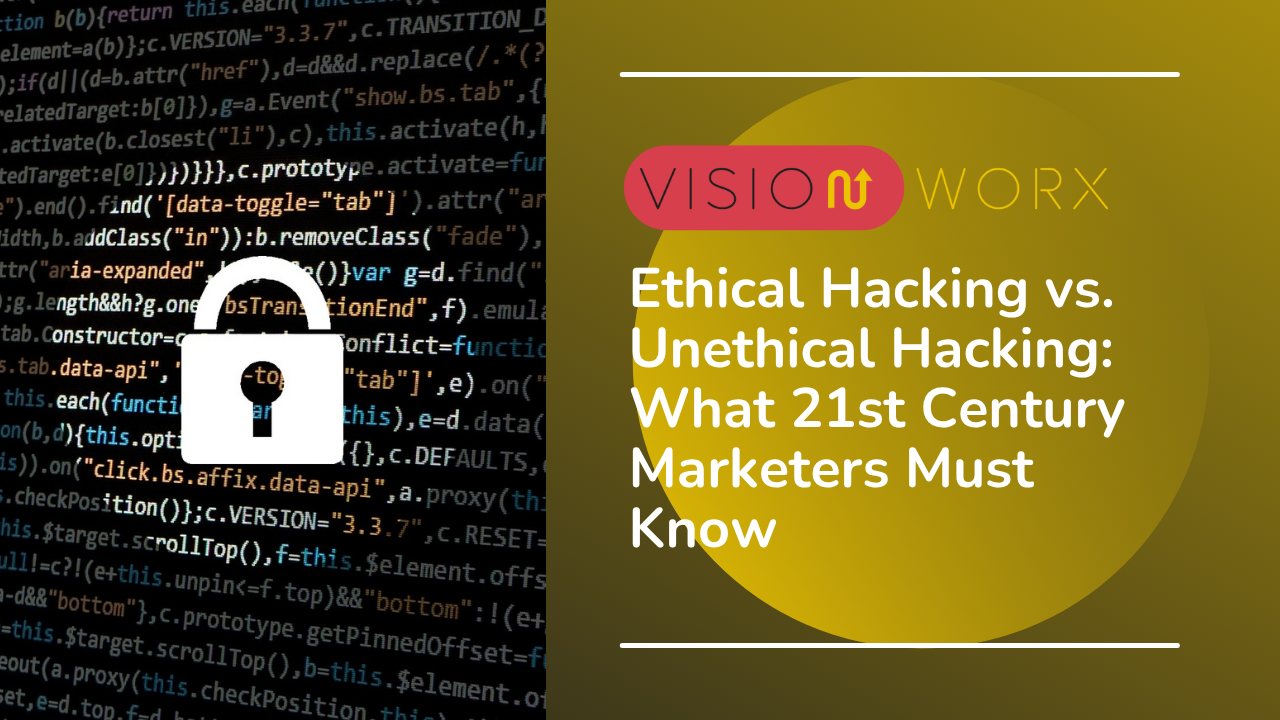Ethical Hacking vs. Unethical Hacking: What 21st Century Marketers Must Know
Jun 24, 2025
In an era where digital trust defines brand value, marketers need to understand more than just data trends and customer behavior. Cybersecurity is no longer IT's responsibility alone—it's a brand imperative. And in that realm, the distinction between ethical hacking and unethical hacking is critical.
What Is Ethical Hacking?
Ethical hacking, or "white hat hacking," is the practice of intentionally probing digital systems to identify vulnerabilities—before malicious actors can exploit them. Ethical hackers are often hired by companies to stress-test websites, customer data systems, and software platforms.
Key traits:
-
Permission-based
-
Transparency-focused
-
Protects user data
-
Helps brands stay compliant and secure
What Is Unethical Hacking?
Unethical hacking, or "black hat hacking," involves exploiting systems without permission. These hackers aim to steal data, disrupt operations, or gain unauthorised access—often for financial gain or manipulation.
Key traits:
-
Illegal and covert
-
Damages brand trust
-
Violates data privacy laws
-
Can result in legal and financial consequences
Why It Matters in Modern Marketing
Modern marketing is powered by data. From behavioural analytics to personalised campaigns, marketers rely on digital ecosystems that house sensitive customer information. That makes marketers both data stewards and risk managers.
If your marketing stack includes CRMs, cookies, email campaigns, or customer portals, you're sitting on a goldmine of user data. Failing to understand how that data can be compromised isn't just negligent—it's brand-threatening.
Ethical Hacking as a Marketing Advantage
Brands that proactively engage ethical hackers to audit their systems send a strong message to their customers: Your data matters. Your trust matters.
Benefits include:
-
Stronger customer trust
-
Reduced risk of data breaches
-
Compliance with laws like GDPR and POPIA
-
A reputation for integrity and security-first culture
The Marketing Risk of Unethical Practices
In contrast, ignoring cybersecurity or participating in unethical tactics (like scraping data, using deceptive pixels, or exploiting consumer behaviour without consent) aligns marketers with the wrong side of the digital fence.
This not only invites regulatory scrutiny but erodes consumer trust—something far harder to rebuild than it is to lose.
Conclusion
Ethical hacking isn't just for developers—it's for brands that care about resilience, responsibility, and long-term customer relationships. In 21st-century marketing, where the line between technology and trust is razor-thin, knowing the difference between ethical and unethical digital practices is essential.
Want to create a marketing strategy rooted in integrity and digital safety? Explore our brand audits and digital trust services at Vision Worx. Secure your strategy. Strengthen your brand.
Ready to build resilience in your business?
Subscribe to our Visionary Insights newsletter for more expert tips on thriving in today’s fast-paced environment!
We respect your privacy. Your information is safe with us and will never be shared or sold.

